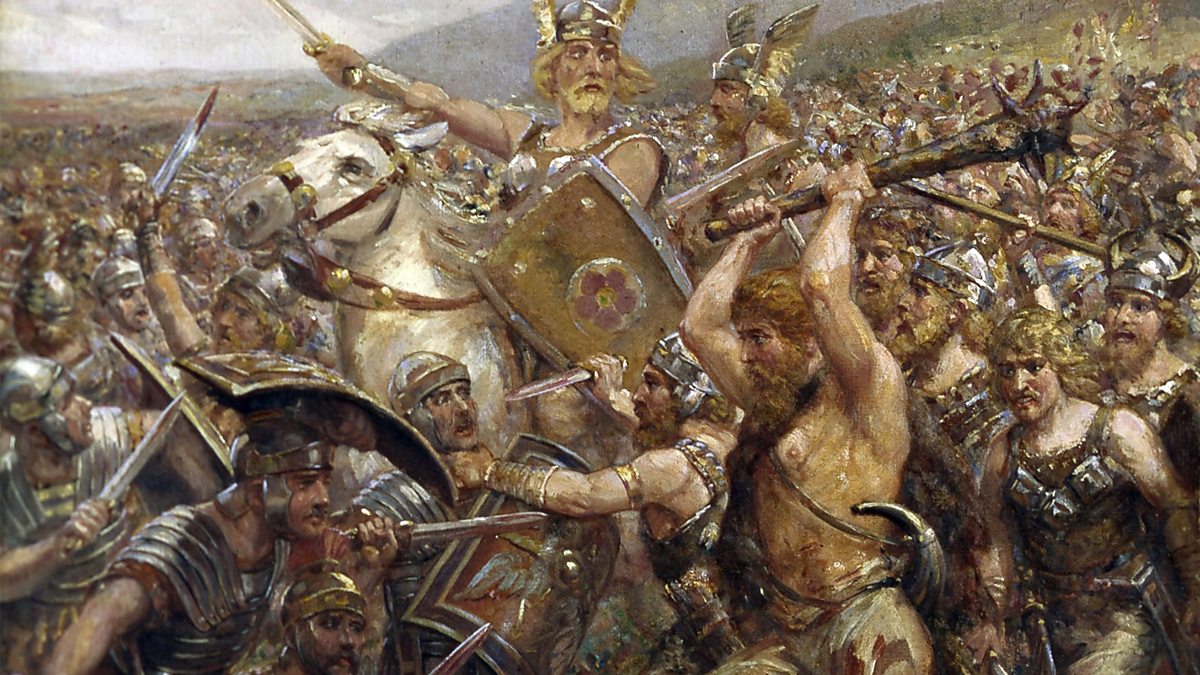
The Battle of the Teutoburg Forest, a pivotal event in ancient history, marked a significant turning point in the Roman Empire’s expansionist ambitions. In 9 AD, an alliance of Germanic tribes, led by Arminius, a chieftain of the Cherusci tribe, ambushed and decimated three Roman legions commanded by Publius Quinctilius Varus. This battle, fought in what is now modern-day Germany, not only halted Rome’s eastward expansion but also shaped the future of Europe. This article delves into the details of this legendary battle, exploring its background, key figures, strategies, and lasting impacts.
The Prelude to the Battle
The Roman Empire, at the zenith of its power under Emperor Augustus, sought to expand its territories beyond the Rhine River into Germania. The Romans aimed to integrate these lands into the empire, imposing Roman laws, culture, and taxation. Publius Quinctilius Varus, a trusted lieutenant of Augustus, was appointed to govern the newly conquered Germanic territories.
Unknown to Varus, Arminius, a Germanic chieftain who had served in the Roman military and had gained Roman citizenship, was secretly plotting a rebellion. Arminius, leveraging his understanding of Roman military tactics and his knowledge of the local terrain, planned an ambush in the dense, marshy forests of Teutoburg.
The Ambush in the Teutoburg Forest
The battle commenced in September 9 AD, as Varus led his legions, comprising approximately 20,000 soldiers, through the Teutoburg Forest. The Romans, burdened with heavy armor and equipment, found themselves in a challenging landscape, with narrow paths and difficult terrain.
Arminius, with his coalition of Germanic warriors, including the Cherusci, Marsi, Chatti, Bructeri, and others, launched a surprise attack on the Roman columns. The Germanic tribes used guerrilla tactics, striking swiftly from the cover of the forest, and then disappearing back into its depths. The Roman legions, accustomed to fighting in open battlefields and in tightly organized units, were ill-prepared for this kind of warfare.
The Downfall of Varus and His Legions
Over the course of three days, the Germanic tribes relentlessly harassed and attacked the Roman forces. The Romans, struggling with the terrain and the relentless onslaught, suffered heavy casualties. Varus, realizing the hopelessness of the situation and reportedly overcome with shame, committed suicide. The remaining Roman forces were either slaughtered, captured, or enslaved.
Aftermath and Historical Significance
The defeat at Teutoburg Forest was a catastrophic loss for the Roman Empire. It lost three legions, XVII, XVIII, and XIX, which were never reconstituted, marking a rare instance of entire legions being wiped out. The psychological impact was profound, with Roman historian Suetonius quoting Augustus as exclaiming, “Quinctilius Varus, give me back my legions!”
This battle significantly halted Roman expansion into Germania. The Roman Empire refocused its efforts on fortifying its borders along the Rhine and Danube rivers, which would eventually become the frontier of the empire for several centuries. The Teutoburg Forest debacle fundamentally reshaped the Roman Empire’s approach to its frontiers, emphasizing defense over expansion.
Legacy and Historical Debate
The Battle of the Teutoburg Forest has been a subject of fascination and debate among historians. It is often seen as a clash between Roman imperialism and Germanic tribal independence, highlighting the limits of the Roman military machine against asymmetrical warfare tactics.
Moreover, the battle has taken on a symbolic significance in German nationalism. In the 19th century, it was celebrated as the moment when Germanic tribes united against a common enemy, although modern historians caution against such nationalist interpretations.
Archeological Discoveries
In the 20th century, archaeological excavations in the Kalkriese area, believed to be the site of the battle, have uncovered significant findings, including Roman weapons, armor fragments, and human remains. These discoveries have provided valuable insights into the battle, confirming some historical accounts and challenging others.
The Battle of the Teutoburg Forest stands as a testament to the unpredictability of history and the impact of individual decisions and events. It not only changed the course of Roman expansion but also shaped the cultural and political landscape of Europe. As we continue to uncover more about this ancient battle through archaeological research, the legacy of the Teutoburg Forest remains a crucial chapter in the annals of European history.
Related articles:
Early History of Germany
German History Timeline
